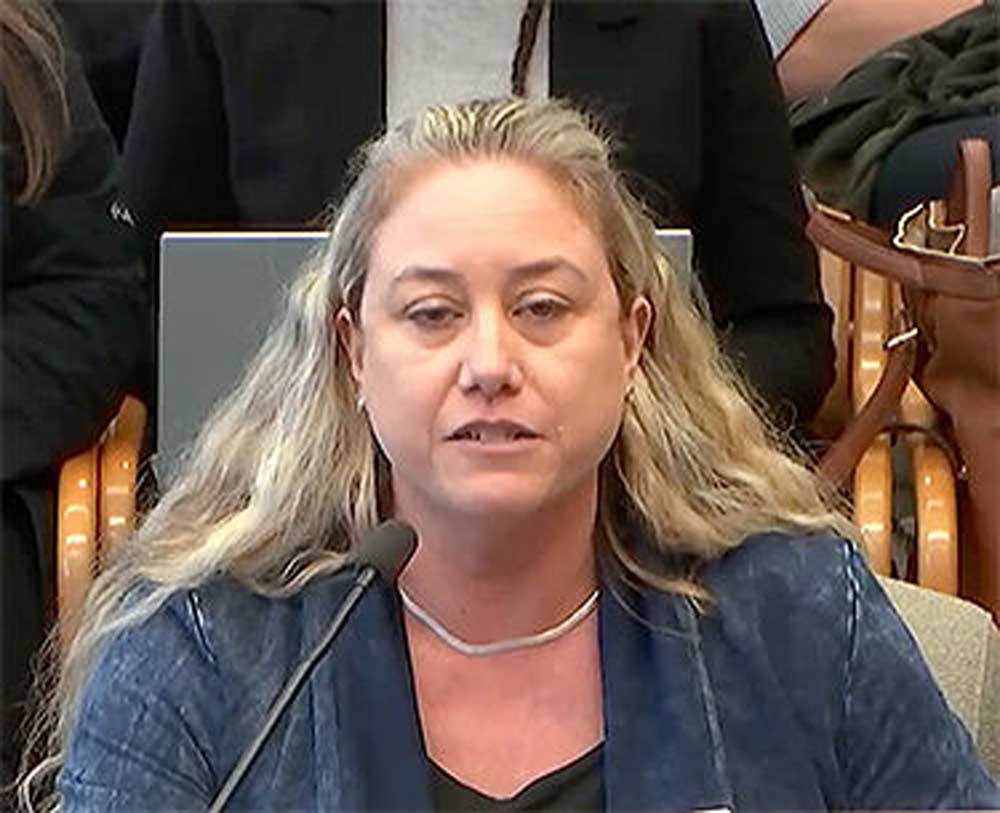Washington OT law helped kill farm, legislative committee told
Published 11:00 am Wednesday, January 31, 2024

- April Clayton
OLYMPIA — A tearful Central Washington orchardist said Jan. 30 low fruit prices and high labor costs have buried her farm and asked lawmakers to amend the agricultural overtime law to save other farms from going under.
April Clayton told the Senate Labor and Commerce Committee that her family decided two months ago to stop farming. She said in an interview the family will lease the farm and that their operation died “by a thousand cuts.”
Overtime ‘main thing’
“The main thing really is the overtime, and the fact that the returns just aren’t there,” she said.
Clayton testified for Senate Bill 5476, which would raise the overtime threshold to 50 hours for 12 weeks a year chosen by the farm. The Democratic-controlled committee squeezed in a short hearing, but will not pass the bill.
The overtime law went into full effect Jan. 1, giving all farmworkers time-and-a-half pay after 40 hours in a week. The threshold was 48 hours last year.
At 48 hours, labor costs went up, Clayton said. “It led us to believe it’s not sustainable at 40,” she said.
About 300 farmworkers rallied Jan. 25 at the Capitol to repeal or amend the overtime law. Some workers said they were taking home less money than before the law because employers are cutting back hours.
The Democratic-controlled Legislature is not considering changing the law. Committee chairwoman Karen Keiser, D-Des Moines, limited each side to four witnesses. The House labor committee held no hearing at all.
Supporters of amending the overtime law argue economics, while defenders argue social justice.
Washington State Labor Council government affairs director Sybill Hyppolite testified that overtime compensated workers for “excessive hours” and made for better work-life balance.
Conflicting testimony
The committee heard conflicting testimony from farmworkers about whether the law actually helped farmworkers.
Alfredo Juarez, a member of the farmworker union Familias Unidas por la Justicia in Skagit County, defended the law. “Farmworkers want more, not less,” he said.
Alejandro Anita of Sumner said the law has meant fewer hours where he works. Workers are concerned they can’t support their families, invest in their children’s educations or send money to their parents, he said.
Before the law, farmworkers where he worked typically worked nine hours a day, six days a week, he said.
“We are worried about not being able to fulfill our obligations with only 40 hours of work,” Anita said. “We ask for your understanding and support so we can go back to our regular schedule.”
Agricultural employers stress they don’t set the prices for their farm goods and can’t pass on higher labor costs.
Grim economics
Clayton told lawmakers the cherry crop this year brought in enough money to cover fuel, pesticides and nutrients for only one month. A 900-pound bin of gala apples brought $87, not enough to cover the cost of picking, she said.
Lawmakers should drive Highway 97, a main north-south route through Central Washingon, and see the houses that replaced orchards, she said.
“We can stop this from getting worse. We can stop more farms from going under and protect the workers that mean so much to us,” she said.
Clayton said she hoped to someday return to farming.






